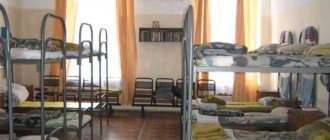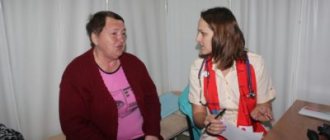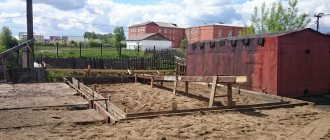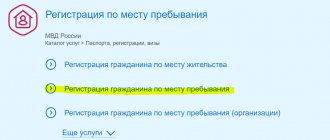Main goals of the program
An important task in implementing the program is to support and encourage compatriots who find themselves abroad for various reasons in making a conscious decision to return to permanent residence in their historical homeland of Russia.
The deterioration of the demographic situation, characterized by an outflow of population from important territories for Russia, as well as a reduction in the working-age population, the implementation of state program contributes to the socio-economic development of Russia.
One of the directions in the resettlement program is to attract specialists, students and scientists, which will replenish the labor market with qualified personnel and have a positive impact on the development of the regions.
58 constituent entities of the Russian Federation are participating in the resettlement program
Resettlement of compatriots in the Russian Federation: where to apply:
- Adygea (republic) Adygeisk
- Maykop
- Gorno-Altaisk
- Aleysk
- Belogorsk
- Arkhangelsk
- Astrakhan (Trusovsky district)
- Agidel
- Alekseevka (Alekseevsky district)
- Bryansk (Fokino district)
- Babushkin (Kabansky district)
- Alexandrov (Alexandrovsky district)
- Volgograd (Central region)
- Babaevo (Babaevsky district)
- Bobrov (Bobrovsky district)
- Buynaksk
- Birobidzhan
- Baley (Baleysky district)
- Vichuga
- Karabulak
- Alzamay (Nizhneudinsky district)
- Baksan
- Bagrationovsk (Bagrationovsky district)
- Gorodovikovsk (Gorodovikovsky district)
- Balabanovo (Borovsky district)
- Vilyuchinsk
- Karachaevsk
- Belomorsk (Belomorsky district)
- Anzhero-Sudzhensk
- Belaya Kholunitsa (Belokholunitsky district)
- Vorkuta
- Buoy
- Abinsk (Abinsky district)
- Artemovsk (Kuraginsky district)
- Dalmatovo (Dalmatovo district)
- Dmitriev-Lgovsky (Dmitrievsky district)
- Boksitogorsk (Boksitogorsk district)
- Gryazi (Gryazinsky district)
- Magadan
- Volzhsk
- Ardatov (Ardatovsky district)
- Moscow (Chertanovo Central district)
- Aprelevka
- Apatity
- Naryan-Mar
- Arzamas
- Borovichi (Borovichi district)
- Barabinsk (Barabinsky district)
- Isilkul (Isilkul district)
- Abdulino
- Bolkhov (Bolkhovsky district)
- Belinsky (Belinsky district)
- Alexandrovsk (Alexandrovsky district)
- Arsenyev
- Velikie Luki
- Azov
- Kasimov
- Zhigulevsk
- Zelenogorsk (Resort district)
- Arkadak (Arkadaksky district)
- Aldan (Aldan ulus district)
- Alexandrovsk-Sakhalinsky (Alexandrovsk-Sakhalinsky district)
- Alapaevsk
- Alagir (Alagirsky district)
- Velizh (Velizh district)
- Blagodarny (Blagadennsky district)
- Zherdevka (Zherdevsky district)
- Agryz (Agryz district)
- Andreapol (Andreapolsky district)
- Asino (Asinovsky district)
- Aleksin
- Ak-Dovurak
- Zavodoukovsk
- Votkinsk
- Barysh (Baryshsky district)
- Amursk (Amursky district)
- Abaza
- Beloyarsky (Beloyarsky district)
- Asha (Asha district)
- Argun
- Alatyr
- Anadyr
- Gubkinsky
- Gavrilov-Yam (Gavrilov-Yamsky district)
List of documents required for participation in the state resettlement program
All copies of documents are provided with presentation of the originals.
- Application for participation in the State program in 2 copies Contains information about the applicant and family members, information about education, work experience, the region of settlement and the intended work activity are indicated.
- Photos 3 black and white photographs measuring 35*45 mm.
- Documents on education and professional training Copies of documents are presented along with the original; documents drawn up in a foreign language must be translated into Russian and notarized.
- Documents on marital status Marriage/divorce certificates are provided in the form of a notarized copy along with the original. Foreign documents must have a notarized translation. Not provided if the applicant has never been married.
- Identity documents A copy of the passport or other identification documents must be translated into Russian if they are drawn up in a foreign language and certified by a notary.
- A copy of the Birth Certificate.
- Copies of documents confirming the applicant’s work activity (work book, employment contract, additional agreements to the employment contract) are provided by the applicant when submitting documents on the territory of the Russian Federation.
- Application for a temporary residence permit Compatriots living in a foreign country simultaneously submit an application for a temporary residence permit.
Persons residing temporarily or permanently in the territory of the Russian Federation submit an application for participation in the resettlement program in the territory of their residence and can receive a certificate in the territory of Russia.
Timeframe for making a decision
The deadline for making a decision on issuance/refusal is 60 calendar days from the date of submission of documents. After 60 days, the compatriot receives notification of the decision and is invited to present a certificate of participation.
A certificate of participation in the resettlement program is issued for a period of three years, after which the participant and family members lose their status as participants in the resettlement program. Renewal of the certificate or re-participation in the program is not provided for by the legislation of the Russian Federation.
After moving, it is important to obtain a temporary residence permit and Russian citizenship as soon as possible.
In what cases is a certificate not issued or revoked?
A certificate of a participant in the state resettlement program will not be issued or canceled if the participant or family members:
- Creates a threat to Russia and Russian citizens by advocating a violent change in the constitutional system of the Russian Federation
- Promotes and finances terrorist groups, is involved in the preparation of extremist acts or otherwise supports extremists
- Been subject to deportation within five years prior to filing your application
- Provided forged documents and provided incorrect information about himself.
- Convicted of committing a particularly serious crime on the territory of the Russian Federation
- He was brought to administrative responsibility more than once during the year for violating the legislation of the Russian Federation.
- Moved to another country for permanent residence
- Traveled outside the Russian Federation for a period of more than six months
In addition, the participant’s certificate will be canceled if:
- A foreign citizen does not wish to reside in the Russian Federation
- A decision was made to administratively expel a compatriot
- There is a basis for not allowing entry into the territory of the Russian Federation
- Non-compliance with the requirements of the regional program of the constituent entity of the Russian Federation (the applicant’s professional skills are not in demand in the territory of settlement)
Who can become a participant in the State Program
Compatriots abroad are citizens of the Russian Federation permanently residing outside the territory of the Russian Federation.
Compatriots are also recognized as persons and their descendants living outside the territory of the Russian Federation and belonging, as a rule, to peoples historically living on the territory of the Russian Federation, as well as those who have made a free choice in favor of spiritual, cultural and legal ties with the Russian Federation, persons whose relatives in a direct ascending line previously resided on the territory of the Russian Federation, including:
- persons who were citizens of the USSR, living in states that were part of the USSR, who received the citizenship of these states or who became stateless;
- immigrants (emigrants) from the Russian state, the Russian Republic, the RSFSR, the USSR and the Russian Federation who had the appropriate citizenship and became citizens of a foreign state or stateless persons.
A compatriot who has reached 18 years of age, is of working age, has legal capacity, and meets the requirements established by the State Program can become a participant in the regional State Program, as well as:
1) have at least secondary vocational education;
2) study in their final years in professional educational organizations and educational organizations of higher education located on the territory of the Russian Federation, in the absence of appropriate education;
3) have at least 3 months of work experience and qualifications that meet the requirements for vacancies in demand on the labor market in the territory of the planned settlement;
4) carry out entrepreneurial activities, preferably in priority areas for the development of small and medium-sized businesses and have at least 3 months of experience in entrepreneurial activity in the Kaliningrad region in case of submitting an application for participation in the State program in the Kaliningrad region.
The decision of a compatriot to participate in the State Program is made voluntarily on the basis of a conscious choice of place of residence, work and (or) study and the implementation of his labor, educational, creative and other opportunities on the territory of the Russian Federation and is formalized by submitting a personal application to the authorized body in the country of his permanent residence accommodation.
Compatriots who are foreign citizens, permanently or temporarily legally residing on the territory of the Russian Federation or who arrived on the territory of the Russian Federation in an emergency en masse, recognized as refugees on the territory of the Russian Federation or who received temporary asylum on the territory of the Russian Federation, have the right to apply for participation in the State Program and receive a certificate of participation in the State Program on the territory of the Russian Federation.
Compatriots submitting an application for participation in the State Program in the Kaliningrad Region must have documented labor, entrepreneurial and other activities not prohibited by the legislation of the Russian Federation in the Kaliningrad Region (at least 3 months as of the date of submission of the compatriot’s application for participation in the State Program).
The list of required documents, as well as the procedure for obtaining the status of a participant in the State Program, can be found on the official website of the Main Directorate for Migration Issues of the Ministry of Internal Affairs of Russia https://guvm.mvd.rf.
Temporary residence permit under the resettlement program
A participant in the resettlement program has the right to apply for a temporary residence permit to the authorized body in a foreign country, or in the territory chosen for resettlement.
Documents written in a foreign language must have a notarized translation
List of documents for obtaining a temporary residence permit
- Two photographs 35*45mm (stateless persons provide three photographs)
- Identity document
- A residence permit is granted if a compatriot lived in the territory of another state as a citizen of which he is not.
- Certificate of no criminal record (provided by the authorized body of the country where the compatriot resided permanently, the validity of the certificate should not exceed three months)
- Certificate confirming that the participant and his family members are free from HIV infection
- Certificate of absence of drug addiction and infectious diseases
- Government payment receipt duties
- The period for consideration of the application is 60 days from the date of submission of the application.
State duties are paid through branches of Sberbank of Russia and the Internet portal of government services.
After receiving a temporary residence permit, a person participating in the resettlement program can apply to grant him and his family members citizenship of the Russian Federation.
Legislative regulation of the issue
The resettlement program for compatriots was introduced in 2006. The system began to operate after the issuance of Presidential Order No. 637 of June 22, 2006. Initially, it was in effect for a limited period of time. After one extension, in 2012 the government decided to make it indefinite.
The latest legislative changes to the program were adopted in late spring 2021. On May 12, Presidential Order No. 322 was issued. The document made minor adjustments to certain rules of the resettlement program, and also expanded the circle of people who are relatives of a migrant who can go to Russia with him.
The order also changed the validity period of the migrant’s certificate. This is the period allotted to a citizen to obtain Russian citizenship. Previously it was 3 years, now it has been increased to 5 years.
IMPORTANT:
Foreigners participating in the resettlement program receive citizenship through a simplified procedure. They do not need to obtain a residence permit in advance. Having fulfilled all the conditions and received a temporary residence permit, they can apply for citizenship.
Obtaining citizenship of the Russian Federation for participants of the resettlement program
In accordance with Part 7 of Article 14 of the Federal Law of May 31, 2002 No. 62-FZ “On Citizenship of the Russian Federation,” program participants have the right to obtain citizenship in a simplified manner.
To do this, the participant must contact the territorial body of the Ministry of Internal Affairs of Russia with the following list of documents
- Application in duplicate
- Identity documents
- 3 photos 35*45
- Receipt for payment of duty
- Temporary residence permit or residence permit
- Participant's certificate
- A document confirming the applicant’s request to renounce existing citizenship
If the applicant wants to include his children in the application, he must provide
- Child's birth certificate
- Child's passport if available
- A document confirming his residence on the territory of the Russian Federation (TRP, residence permit or temporary residence permit or residence permit of one of the parents in which the child is registered)
- A copy of the detachable part of the form on the arrival of a foreign citizen
- The child’s consent to acquire citizenship is provided if the child is 14-18 years old
Application review period is 3 months
Requirements for applicants
To be able to move to the Russian Federation under the compatriots program, it is not enough to fit into one of the categories of persons for whom it is available. Conditions must also be met. A person can apply to participate if they:
- has reached the age of majority (according to Russian laws - 18 years);
- is competent - capable of fully or with some restrictions to carry out labor activities;
- knows the Russian language well - reading, grammar, spelling and speech are covered;
- has the knowledge and skills to work in any field of activity - confirmation is required by a diploma, certificate, certificate of qualification or any other document confirming the citizen’s abilities;
- has a basis for legal residence in Russia - is a refugee, has a temporary residence permit or residence permit, holds a passport of a citizen of the Russian Federation;
- has no problems with legislation - both the laws of the Russian Federation and the state where the citizen lives and the country of which he has citizenship are taken into account;
- was not previously deported from Russia.
Receiving compensation and payments
A participant in the voluntary resettlement program receives the right to a number of compensations and payments provided for by law
- Reimbursement of expenses for moving and transportation of property to the locality where the citizen decided to move
- Exemption from customs duties for the import of goods and vehicles for personal use
- Reimbursement of expenses for paying government fees. duties
- Payment of lifting
- Receiving a monthly benefit in the absence of income from work or business activities
State guarantees
The State Program participant and his family members have the right to:
1) exemption from customs duties in accordance with the customs legislation of the Customs Union;
2) obtaining a permit for temporary residence outside quotas, a residence permit, as well as for acquiring citizenship of the Russian Federation in a simplified manner in accordance with the legislation of the Russian Federation on citizenship of the Russian Federation;
3) receipt of preschool, primary general, basic general, secondary (complete) general education, as well as primary, secondary, higher and postgraduate professional education, additional professional education;
4) receiving medical care within the framework of state guarantee programs for the provision of free medical care to citizens in accordance with the legislation of the Russian Federation;
5) provision of places in social service institutions for the population and provision of other services in accordance with the legislation of the Russian Federation on social services for citizens;
6) receiving services in the field of promoting employment of the population in terms of assistance in finding a suitable job, organizing professional guidance for citizens in order to choose a field of activity (profession), employment, organizing paid public works, job fairs and training jobs, informing about the situation on the market labor in a subject of the Russian Federation in accordance with the legislation of the Russian Federation.
Also, the State Program Participant and his family members have the right to receive state guarantees and social support depending on the chosen territory of settlement, including:
1) compensation from the federal budget for expenses for moving to a future place of residence, including payment for travel and transportation of personal belongings in accordance with Section VII of the State Program;
2) compensation from the federal budget for the costs of paying the state fee for the preparation of documents determining the legal status of migrants on the territory of the Russian Federation, for the payment of consular fees and fees for reimbursement of actual expenses associated with issuing a visa and accepting applications for a temporary permit accommodation;
3) receipt of lifting allowances from the federal budget. The size of the allowance is determined taking into account the cost of living established in the relevant constituent entity of the Russian Federation for the main socio-demographic groups of the population. In the Kaliningrad region, allowances are paid in the amount of two times the subsistence minimum, which in 2021 is:
— for the working population — 13,153 rubles;
— for pensioners — 10,378 rubles;
— for children — 11,705 rubles.
The procedure and conditions for compensation of expenses for moving and transportation of personal property, and payment of allowances are determined by the Government of the Russian Federation.
The authorized body for making payments to the State Program participant and his family members is the Department for Migration Issues of the Ministry of Internal Affairs of Russia for the Kaliningrad Region (Kaliningrad, Frunze St., 6).
Acceptance of documents for payment of benefits and compensation is carried out in the department for work with compatriots, refugees and internally displaced persons
Directorate for Migration Issues of the Russian Internal Affairs Directorate for the Kaliningrad Region at the address: Kaliningrad, st. Frunze, 6, office 13, tel.: (4012) 558-185, 558-205.
How to reimburse moving costs
To reimburse the costs of moving and transporting property, you must contact the territorial body of the Ministry of Internal Affairs at your place of residence with an application
Attach along with the application
- Original documents confirming payment of the consular fee, expenses associated with obtaining a temporary residence permit, residence permit, visa, travel and luggage tickets and receipts. Copies of documents for payment of customs duties and taxes.
- A copy of the program participant certificate
- Copy of identification documents
- Copies of documents confirming registration at the place of residence
- Details of an account opened with a credit institution for transferring compensation
The applicant is given a receipt indicating that the documents have been accepted for consideration. The decision on compensation will be considered within 10 working days.
Documents and deadlines for consideration of the decision on compensation for payment of state duty
Compensation for government expenses. fees associated with registration of temporary residence permit and residence permit and citizenship are paid after their receipt.
List of documents provided
- Application in the prescribed form
- Copy of identity document
- A copy of the resettlement program participant's certificate
- Copy of temporary residence permit or residence permit
- A copy of the government payment receipt. duties
- A copy of the passport of the family member applying for reimbursement of expenses
- Account details for transferring compensation
The period for consideration of the application is 15 days from the date of submission of the application. The applicant receives notification of the decision in writing.
Common mistakes on the topic
Error: The opinion that the Russian language can be learned during the resettlement process.
To be able to take advantage of the opportunity to move under the program, the applicant must already have a good knowledge of the Russian language. This is one of the main conditions that must be met for the application to be approved.
Error: Inability to select the region and city where the move will be made.
This opinion is partly incorrect. Yes, a foreign migrant cannot move to any region of Russia. However, he is given a fairly large number of subjects participating in the program to choose from.
Receiving allowances provided for by the voluntary resettlement program
To receive benefits, the program participant personally submits an application to the territorial unit of the Ministry of Internal Affairs for payment of benefits to him and his family members; along with the application, copies of identification documents of the applicant and his family members applying for benefits must be provided.
After 15 days, the application will be reviewed and funds for payment of benefits will be transferred according to the details provided by the applicant.
The amount of the allowance payment depends on the region of residence.
The maximum amount of payments in priority regions for settlement occurs in two stages and is:
The participant is paid in the first stage - 150 thousand rubles. in the second stage - 90 thousand rubles.
For a member of the participant’s family 70 thousand rubles. and 50 thousand rubles. respectively.
Document review period
All documents that were provided for participation will be considered within 60 days. During this time, the authenticity of the documents will be checked, the correctness of completion, as well as the completeness of the information provided. Upon completion of the review, a decision will be made on whether to grant permission to participate in the program. You will need to receive it in person, for which you will need to provide an identification document.
Important! You can submit documents not in Russia, but abroad. If they are abroad, then they can contact the representative office of the Russian Migration Service, or the temporary group of the compatriots program at the embassy or diplomatic mission.
Conditions for receiving monthly benefits in the absence of income
A monthly benefit is paid to the participant until citizenship is obtained, for a period of no more than 6 months. To receive this benefit, the applicant applies and provides a number of documents
- Application for payment of monthly benefits
- Certificate of no income from the employment service or other authorized body
- Passport
- Participant's certificate
The decision on granting benefits will be made within 15 days
The benefit amount is 50% of the subsistence minimum established in the region of settlement.
Every month, the program participant confirms with a certificate that he has no income; if the payment is not provided, the payments are terminated.
Advantages and disadvantages of the state program
The advantages include the following aspects:
You may also like
1
Filling out the form to participate in the program...
6 852
- Financial support for immigrants - compensation of expenses, payment of allowances and unemployment benefits;
- IDPs receive temporary residence permits regardless of established quotas.
- The procedure for obtaining citizenship has been simplified.
- Employment does not require a work permit, and the employer does not need to obtain any permission to hire a migrant.
However, arriving in the Russian Federation, migrants face the following difficulties:
- Professional selection criterion in regional programs – the range of regions available for living is narrowed;
- Obligation to live and work for three years in the territory of the selected subject.
Regions for relocation
Priority areas have been identified, the improvement of the demographic and socio-economic situation in which is of strategic importance. Among them:
1. Republic of Buryatia.
2. Edges:
- Transbaikalsky;
- Kamchatsky;
- Primorsky (except for the city of Vladivostok);
- Khabarovsk;
3. Areas:
- Amurskaya;
- Irkutsk;
- Magadan;
- Sakhalinskaya.
In addition to these priority territories and regions, another 49 participating regions are participating in the implementation, a full list of which can be found here.
From 2021, the Nizhny Novgorod region is excluded, from 2021 – Udmurtia and the Jewish Autonomous Okrug.











